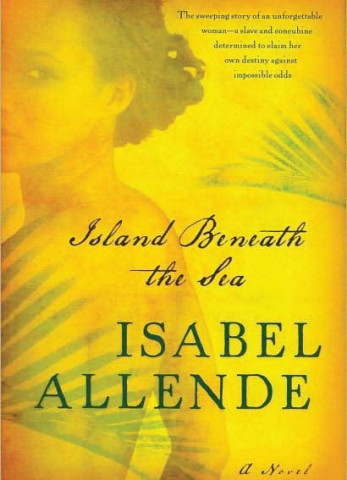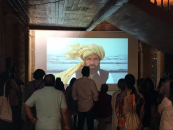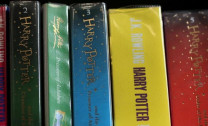The F Word: When you’re a woman
The F Word is an interesting collection of work but there's only so much a single edition of a magazine can achieve.

Of course, there’s only so much a single edition of a magazine can achieve, and it is important to keep this in mind with Granta’s latest edition on feminism: The F Word.
The work included in this edition is not attempting to answer overarching feminist questions; it’s not even always asking questions. Much of the work reads as a statement on various subjects — power positions, gender roles, love, marriage, divorce, loss of innocence. Some of the names in the list of contributors stand out more than others, as with most Granta editions — it is, after all, ‘the magazine of new writing’. With the usual mix of fiction, non-fiction and poetry, amongst the many contributors there are, as always, a few well-established names. In this case, the best known contributors would be Booker award winner AS Byatt, and writer of the notable lesbian bildungsroman Oranges Are Not the Only Fruit, Jeanette Winterson. Other novelists in the edition include Haitian-American writer Edwidge Danticat whose piece Hot Air Balloons proves her further maturity in the years following her brilliant first novel Breath, Eyes, Memory in 1994.
Of course, a closer look at feminist writing (or feminism in writing) is always appropriate — the balance of power the world over continues to favour men, and many of these stories examine just that. One that stands out is The Obijwe Week by Louise Erdrich, a writer of Native American descent. A story about a man who keeps a woman named Sweetheart Calico tied to his bed, it is a strange, almost surreal look at power plays and role reversals between genders. “We are co-dependent,” Klaus says, “I read it in a newspaper. We are at risk, you and I. Well, you most of all, since you are the one tied to the bed.” Later, Sweetheart Calico escapes, to eventually return to her captor but in a position of power.
A writer Granta has specially introduced in this edition is Taiye Selasi, a woman of Nigerian and Ghanian heritage whose work has already been lauded by Nobel Laureate Toni Morrison. Selasi’s story The Sex Lives of African Girls is an incredibly evocative and sensitive look at childhood sexual abuse at the hands of a family member, and the difficulty of processing such a thing. With a two-book deal with Penguin, hers is a name to watch out for in the near future.
For Pakistani readers, the most important thing to note is that The F Word contains a poem by a young Karachiite — the winner of the first Life’s Too Short Short Story Prize, Sadaf Halai. “Inheritance” is by far the most accessible and poignant of the poems in the entire edition — and not just because it is easier for a Pakistani reader to relate to. Halai’s poem is simple, straightforward and brings to light so much of who her generation is: “She takes the stories she is given. She tells them the best she can.”
Unfortunately, not each piece in The F Word arrests the reader the way Selasi’s or Erdrich’s do. The opening piece Aftermath, by Rachel Cusk, is a tediously lengthy look at the dissolution of her marriage and the following divorce. It is all very emotional and serious, but really, isn’t every divorce?
It would have been interesting to read a male writer’s perspective in a feminism issue, even though male writers are published more often anyway, as Granta editor John Freeman recently pointed out. As it stands, The F Word is generally an interesting collection of work by women around the world, but not all of it is as riveting as readers would expect.
Published in The Express Tribune, Sunday Magazine, June 19th, 2011.



















COMMENTS
Comments are moderated and generally will be posted if they are on-topic and not abusive.
For more information, please see our Comments FAQ